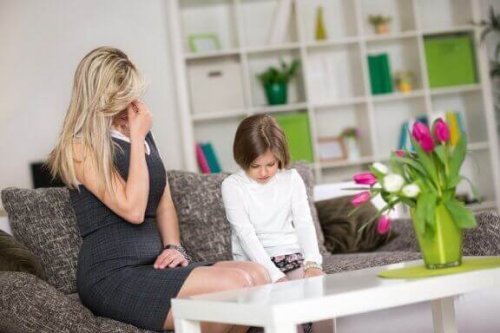Duty obedience work: we are teeming with such words,
behind which vanity, cruelty and arrogance are hidden.
Kurt Tucholsky
Bumsenberger, Karin (2001). Characteristics and structure of parenting behavior. Unpublished diploma thesis. Johannes Kepler University Linz: PPP of the jku.
Busch, F.-W (1999). The case for maintaining a mission statement. Family in Christian responsibility. F.-W. Busch, B. Nauck & R. Nave-heart (Ed.), Current research fields in family science. Family and society. Volume 1 (pp. 231-255). Wuerzburg: Ergon.
Hamann, B (1992). Contemporary trends in social developments as a challenge for family-oriented education. In K.-A. snow wind & L. von Rosenstiel (ed.), Change in the family. In N. Havers, W. Marx & H. Tschamler (ed.), Munich university publications. Psychology and pedagogy (pp. 57 – 73). Göttingen – Toronto – Zurich: Hogrefe – publishing house for psychology.
Herzog, W., Böni, E. & Guldimann, J. (1997). Partnership and parenthood. Modernizing the family. Bern – Stuttgart – Vienna: main.
Huinink, J (1999). Children between the public and the family. The consequences of the redistribution of benefits and responsibility for the younger generation. In F.-W. Busch, B. Nauck & R. Nave-Herz (ed.), Current fields of research in family science. Family and society. Volume 1 (pp. 119-160). Wuerzburg: Ergon.
Peuckert, R (1999). Family forms in social change. Opladen: Leske + Budrich.
Schneewind, K.-A (1992). Families between rhetoric and reality: a family psychological perspective. In K.-A. snow wind & L. von Rosenstiel (ed.), Change in the family. In N. Havers, W. Marx & H. Tschamler (ed.), Munich university publications. Psychology and pedagogy (pp. 9-35). Göttingen – Toronto – Zurich: Hogrefe – publishing house for psychology.
Shutts, K., Kenward, B., Falk, H., Ivegran, A. & Fawcett, C. (2017). Early preschool environments and gender: Effects of gender pedagogy in Sweden. Journal of Experimental Child Psychology, 162, 1-17.
The reasons for this change in values are the increase in prosperity and better social security, the tertiarization of the economy, the increase in employees and civil servants, the expansion of education and the social climate change in politics. Workers tend to conform, the other professions tend to be self-employed, which is due to the different professional experiences. The educational goal of self-employment is more supported among the more highly educated than among the secondary school leavers, although the distances between the professional and educational groups have grown over time (see Peuckert 1999, p. 138)..
Education promotes more liberal thinking, reduces authoritarianism, dogmatism and ethnocentrism, and goes hand in hand with greater political commitment. In addition, the younger generations did not have to experience the war and could grow up in a world that was not characterized by existential threats (see Herzog, Böni & Guldimann 1997, p. 60).
The change in the social and institutional foundations of families is important for the changed living situation of children. Family and privacy forms that do not correspond to the traditional pattern of the middle-class family are becoming increasingly important. The redistribution of tasks and services between the family and social institutions means a redistribution of social relationships from the closer family context into the public space. This not only results in a lasting change in the social relationship structures of children, but also inevitably implies a redistribution of responsibility between families and non-family institutions and instances towards the younger generation (cf. Huinink 1999, p. 119f).
Of course, this change in values also affects the parent-child relationship itself. With the emphasis and recognition of children’s autonomy claims, the parent-child relationship is increasingly transforming into a partnership. The parenting relationship becomes a relationship, which manifests itself in the epochal change on the one hand in a stronger child-centeredness on the other hand in a weakening of the couple system (see Schneewind 1992, p. 14).
The "child-centered family that family sociologists speak of today does not remain without effects on the marriage relationship. a. to competition between the parents for the child (cf. Busch 1999, p. 239).
In addition, there is an increasing reflection and educationalization of the role of parents by a bevy of experts who – perhaps without making it better themselves – know it better and thus give many parents doubts about their own ability to bring up children (cf. Schneewind 1992, p. 14).
Recent developments in child rearing
In the past decades, the manners between parents and children have become more egalitarian. At the same time, taking on the role of parent has become more demanding and difficult. With all variants according to social class and level of education of the parents, this manifests itself in a general withdrawal of parental punitive practices, less supervision of children and adolescents and an increasing influence of adolescents and adolescents on decision-making processes within the family (see Peuckert 1999, p. 137 f)..
Overall, a decline in conventional norms of classification, such as discipline, good manners and respect, can be observed in the educational sector. On the other hand, autonomy values such as personal independence, judgment and self-confidence increase. This expresses a decline in the premodern value of authority. The educational relationship loses its hierarchical divide and tends towards an increasingly partner-like relationship (see Herzog, Böni & Guldimann 1997, p. 60).
All in all, there is some evidence in a global perspective that parenting has become increasingly difficult. Today it is no longer enough to make demands on the child and enforce them, but education requires a differentiated balancing of demands and allowances, of support and encouragement to self-activity, of protection and risk (see Schneewind 1992, p. 15)..
Overall, authoritarianism has declined in the relationship between the generations. The right of the father has been replaced by the right of the parents, also the right of the parents is no longer “right of rule but custody. No longer ,, parental violence determines the relationship with the child, but ,, parental care. This legal change corresponds to the change in the relationship of the fathers to the children, as is observed in recent psychological and sociological research (see Herzog, Böni & Guldimann 1997, p. 60).
According to surveys, many young couples tend to have a one-child family, another significant proportion to the two-child family. On average, women of childbearing age give birth to 1.5 children. This results in a number of children that is too low for social reproduction. And the majority of existing children are deprived of their sibling experience (see Hamann 1992, p. 61).
The decrease in the number of children per family is attributed to the following aspects. The separation of the world of work and family life, a new attitude towards maternal employment and the possibility of birth control have led to a fundamental change in the attitude towards the child. The education of the children and their maximum social placement is in the foreground – combined with an intimization of the parent-child relationship u. a. because of the small number of children per family. Children play a significantly different role in the life of a couple today than in earlier times. This has an impact on the structure of intra-family relationships. Many young fathers are already involved in caring for and caring for their children and are actively involved in their socialization (cf. Busch 1999, p. 239).
The decline in the number of children since the 1960s can also be seen in this perspective. Children are no longer necessary in our society for old-age provision or as workers. In the foreground is the joy that children bring. Basically, however, this already exists with a child. The psychological motive for generative behavior cannot be quantified like the economic one. More children are more likely to reduce the psychological gain, because then the intensity of the emotional relationship must be reduced or dosed so that none of the children is neglected. The increase in psychological, non-material value of Children therefore an important factor that can explain the decline in birth rates (see Herzog, Böni & Guldimann 1997, p. 60).
The education and support of the child by the parents also has an economic aspect. Realizing the funding intent costs a lot of money. In modern society, having children therefore means a substantial loss of wealth. Since the private costs of bringing up children are much higher than the private economic benefits for parents, this aspect is another reason for having fewer or no children (cf. Busch 1999, p. 240).
Gender neutral education
Shutts et al. (2017) examined gender-neutral education in Sweden using a small sample in Swedish preschools, in which gender-neutral pronouns are used and traditionally gender-specific behaviors are not explicitly promoted. The results show that children who were brought up in a gender-neutral manner could also correctly determine the sex of another child they did not know, but associated less stereotypical prejudices with this categorization. In addition, they were more likely than other children to play with a child of the opposite sex. The influence of gender-neutral education speaks for the fact that the observed effects persisted even if families that had consciously chosen the school in question for reasons of content were removed from the sample.
Children and watches must not be wound up constantly,
you have to let them go.
Jean Paul
Changing position of the child
Raising children, which is still the primary task of the mother today, has become more demanding, contradictory and more conflict-ridden. The newly created norm complex of “responsible parenthood demands that one should not give birth to children for whom one cannot take responsibility for bringing up the child. What is required is the best possible promotion of child development while respecting child needs and desires. “The child may be accepted less and less as it is, with its physical and mental peculiarities, perhaps also defects. Rather, it becomes the target of diverse efforts. The best possible support requires constant commitment from the mothers. As a result of the scientification of the upbringing, enlightened parents have to do considerable “information work, deal with possible risks, damage and development problems of the child and the appropriate upbringing methods in each case (cf. Peuckert 1999, p. 138 f).
Always be kind to your children,
because they are the ones who choose your retirement home.
Phyllis Diller
Change in educational goals
One in summer 2009 The study carried out by the Linz Market Institute shows not only a major change in the living environment of children, but also a change in the values of educational goals. As the graph below shows, the traditional upbringing goals by which today’s adults were raised themselves have become less important, but educating people to be humble and reserved, subordinate and orderly is no longer the same as it used to be.

Compare this also the own study on the educational goals from the perspective of pupils, teachers and parents from the year 1982:

source: Parts of these worksheets come from a study by Karin Bumsenberger: "Characteristics and structure of parenting behavior".
RELATED ITEMS
-
Discipline in raising children
Parents How much discipline children need in education and how you can show your offspring that it is patiently worthwhile to do something…
-

Raising children: children, parents – parenting styles
Every child is different and every child reacts differently in certain situations. It is important to understand the child’s personality right from the start…
-

7 Common mistakes in parenting – I’m a mother
Most parents are probably wondering whether they are doing everything right when raising children. It is important to recognize mistakes in the upbringing,…
-
Literature Binser Martin J. Försterling, Friedrich (2004). Paradoxical effects of praise and blame: personal and situational moderators. Magazine for…
